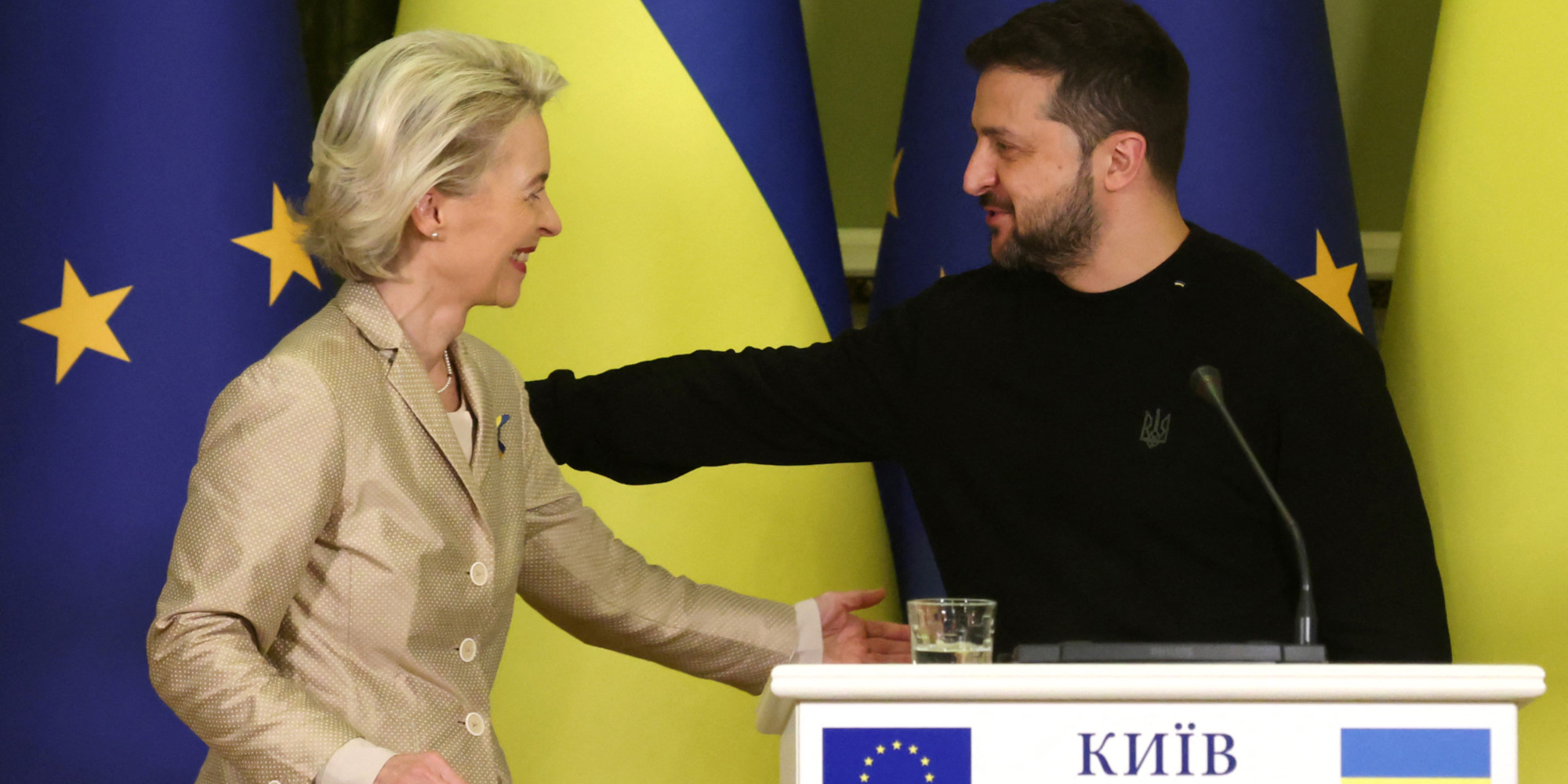“Ukraine will be part of the European Union,” Ukrainian President Volodymyr Zelensky assured Tuesday evening, on the eve of the publication of the European Commission’s opinion on the opening or not of these formal negotiations, a crucial step before Ukraine possibly enters the EU.
In June 2022, the EU granted candidate status to Ukraine, in a highly symbolic gesture a few months after the start of the war, as well as to neighboring Moldova. To move to the next stage, i.e. the opening of accession negotiations, the European Commission has defined seven reference criteria for kyiv. These are conditions to be met, particularly in terms of the fight against widespread corruption and judicial reforms.
And Ukraine seems well on its way to obtaining this green light, considered crucial in kyiv at a time when its counter-offensive is stalling and the war between Israel and Hamas is diverting the attention of its allies.
“I received a clear signal from all my interlocutors” in Brussels, Ukrainian Foreign Minister Dmytro Kouleba declared on Tuesday. The President of the European Commission Ursula von der Leyen welcomed this weekend, from Kiev, the “enormous progress” made by Ukraine, judging that “more than 90%” of the work had been done.
End of the road
But a green light from Brussels is still far from being the end of the road for Ukraine. The 27 will have to approve or not this decision at a summit in December. If they are in favor, Ukraine will then join a list of other European countries that have entered into negotiations with the EU, some of which, like Turkey, have been waiting for many years. Negotiations between the EU and Ankara began in 2005.
Ukraine is not the only one concerned by this highly anticipated report in Brussels on the enlargement of the EU. The expansion of the European family towards the East is considered by several countries as a fundamental element of security in Europe in the face of Russian appetites.
Moldova, a small country among the poorest in Europe which regularly denounces attempts to destabilize Russia, obtained candidate status for membership at the same time as Ukraine. And, just like kyiv, it is waiting for the next step: the formal opening of accession negotiations.
Georgia and the Balkans
Georgia, partly occupied by the Russian army since 2008, for its part hopes to obtain the status of candidate country for membership, which it had been refused in 2022. “Russia will be delighted if we fail” to integrate Georgia to the EU, declared two months ago in Tbilisi the head of European diplomacy, Josep Borrell. But he also stressed that this former Soviet republic in the Caucasus had then only fulfilled three of the twelve criteria put forward by the EU as a precondition for granting candidate status.
Several Balkan countries, Serbia, Bosnia, Montenegro and North Macedonia, are hoping for progress on their long road to the EU. Bosnia, in particular, hopes to obtain the formal opening of accession negotiations.
“We have procrastinated a lot” with regard to these Balkan countries, deplored Monday Charles Michel, the president of the European Council, the body representing the Twenty-Seven which will have the last word on this new enlargement.
Whatever the Commission’s recommendation, the process will be arduous. A possible entry into the EU of Ukraine, a country of more than 40 million inhabitants, will pose many difficulties, starting with financing. If kyiv joins, certain countries would become net contributors to the EU budget after having been beneficiaries of European funds for years.
The EU will also have to reform itself to be able to work with more countries, believe several member states, including France and Germany. And it will absolutely be necessary to do it at the same time as this new enlargement, warned the President of the European Commission in September.
